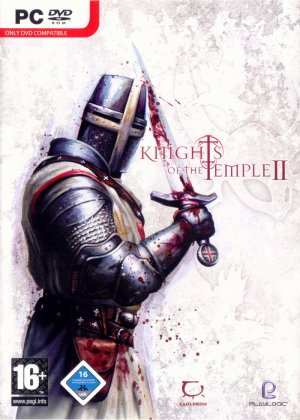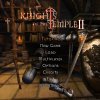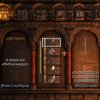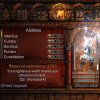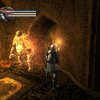In Knights of the Temple II, you again play the role of a Templar knight: Paul de Raque, the grandmaster of the Order of the Temple. The game is set in medieval 13th century Europe and the Middle East. The story revolves around the new crusade of our hero to recover 3 ancient pagan artifacts essential to prevent the imminent attack of the demon armies into our realm of existence.
It is a 3D 3rd-person action game with RPG elements. Gameplay consists of completing quests through travelling in the various locations in the game or battling your way through enemy men and monsters.
The storyline for one is non-linear. At the start of the game you can choose 1 out of 3 locations to visit. Advancing in the game will unlock new locations. Each location is either a city or town where you can advance in the primary mission, obtain sub-quests, trade, meet people, etc. or it could be a dungeon type location crawling with monsters. Often its a little combination of both.
Most of the gameplay (when not exploring cities) revolve around combat and character development. Combat consists of 3D 3rd Person Perspective point of view where you can attack enemies using various skills, abilities and attack combo’s. Each of which can be upgraded at any point of the game by spending experience points to the pointed skill, ability or combo.
On character development, there are 3 major areas that may be upgraded: (1) Knightly Abilities; Spiritually oriented gifts of the Templar knight: from healing to other holy abilities. (2) Skill Abilities; These are usually attack-based skills. Various attacking styles to soften and defeat both men and monster. (3) Combo’s. The extension of the “attack button”. Upgrading the combo section provides additional attack moves.
Combat also is uniquely divided into 3 different weapons. The first is the standard Sword and Shield, providing high defense and standard attack, useful in defensive stances and vs. ranged enemies; The second is the 2-handed weapon, primary for direct damage in close-combat against single or multiple enemies; The third is ranged combat using a crossbow. The perspective in ranged combat diverts to 1st person perspective (though you can still see your head).
During the course of the game, you can obtain additional weapons and armor (as well as other items), either from the course of a sub-quest or purchasing it from a local trader.
